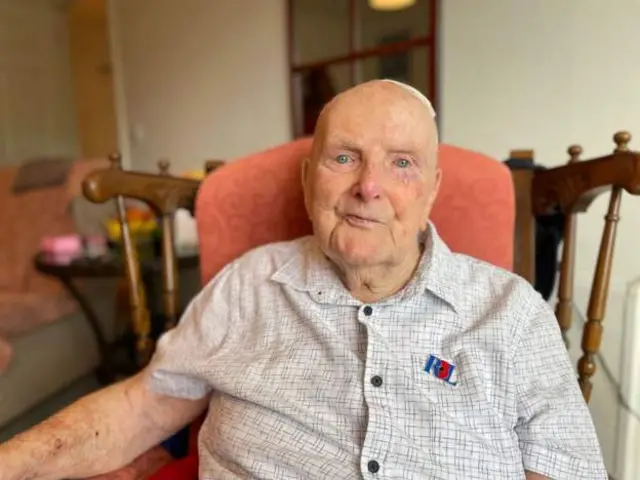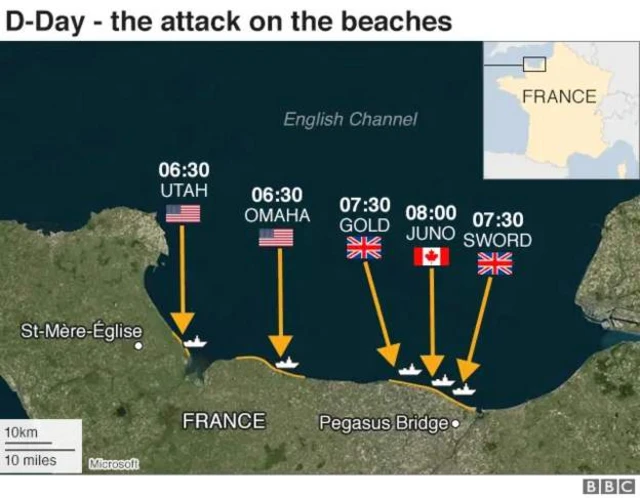Veteran remembers noises, smells and smokepublished at 07:18 BST 6 June 2024
 Katie Thompson
Katie Thompson
BBC News
Alfie Booker still remembers the noises, smells and smoke from D-Day. The 97-year-old was a Royal Navy able seaman responsible for the ammunition on HMS Ramillies.
Aged 17 at the time, he says they didn’t know a lot because they weren’t told a lot other than “you’ll be in action tomorrow”.
His battleship arrived at Sword Beach on the north-west coast of France that day.
“What we saw is the main thing that I can’t forget,” he says.
“All them young lads running and climbing up the beach to get out the way of the German machine guns firing everywhere, mowing them down, terrible. Shells dropping down, tearing people apart, legs, arms flying all over the place. Dreadful.”

